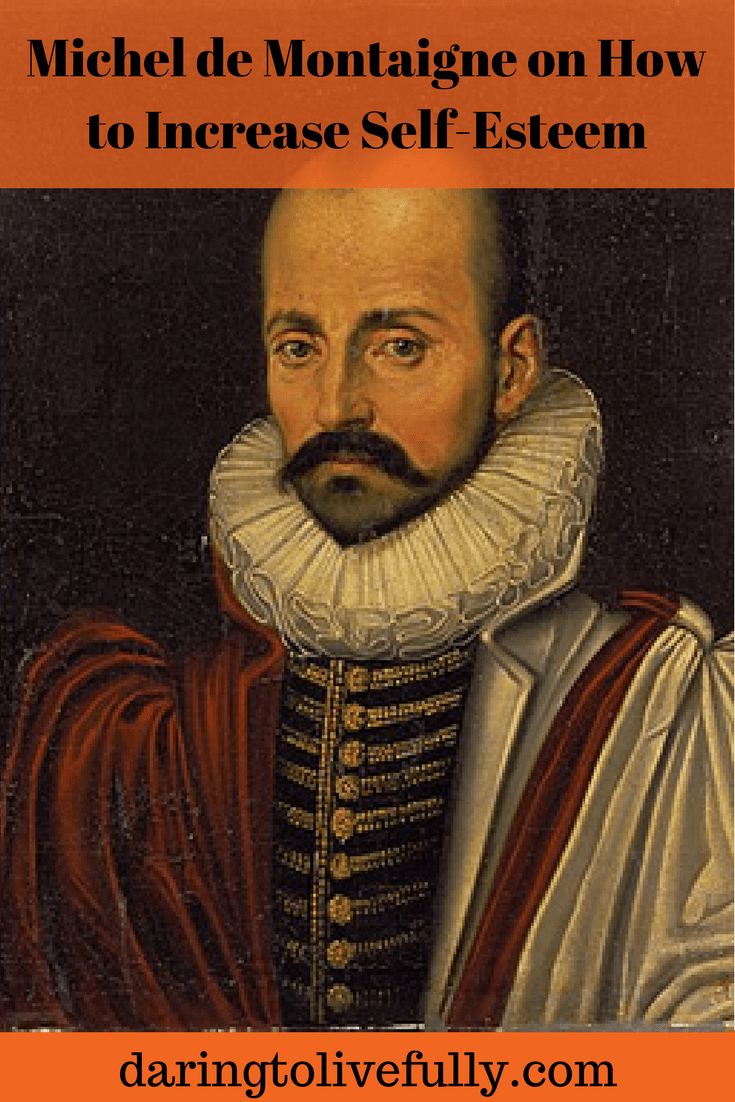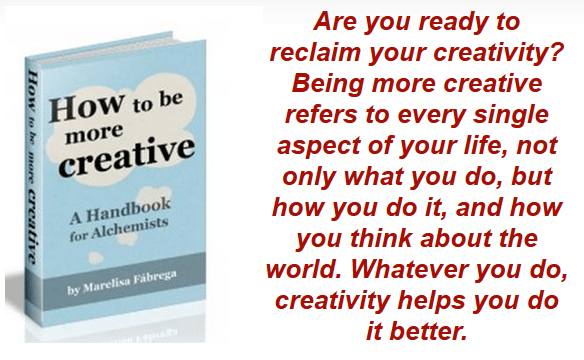
In his essays, Michel de Montaigne—the famous 16th century French philosopher—shares three strategies for increasing self-esteem.
On February 28, 1571, Michel de Montaigne—a highly educated nobleman—marked his 38th birthday by retiring from public duty. He moved a chair, a table, and his library of a thousand books to the tower of his family castle near Bordeaux and proceeded to dedicate himself to reading, reflecting, and writing.
Montaigne marked the occasion by having the following written on the wall of a study opening onto his new library:
“Worn out with the slavery of the court and of public service, Michel de Montaigne … retires to the bosom of the learned Muses … to pass what may be left of a life already more than half spent, consecrating this ancestral dwelling and sweet retreat to his liberty, tranquility and repose.”
The subject he chose to write about was himself. He believed that if we can’t understand ourselves, then we won’t be able to understand anything else. In addition, his intent was to write about himself in order to create a mirror in which other people could recognize their own humanity.
The result of his writing was thousands of pages of something he referred to as “essais”, from the French verb essayer: “to try or attempt”. Today, these are known as The Essays of Michel de Montaigne, and they are widely read all over the world. These essays contain the answers he came up with to questions such as the following:

- What does it mean to be human?
- Why do I behave as I do?
- Why do other people behave as they do?
- How should I live?
- How does a person make wise and honorable choices?
- How should I treat others?
- How can I acquire peace of mind?
- How can people cope with fear of death?
- When I play with my cat, am I playing with her, or is she playing with me?
Contrary to the other philosophers of the French Renaissance who—like the ancient Greek and Roman philosophers they so admired—thought that we could reason our way to happiness, Montaigne put little trust in reason. In fact, Montaigne believed that a lot of our problems stem from the fact that our brains are large and complex.
We often misuse our big brains and end up making our lives a lot more difficult and complicated than they need to be. That is, we reason our way to unhappiness, low confidence, and misery. Instead, Montaigne thought we should accept that we are human and limited, and allow ourselves to be imperfect.
A few days ago, I came across an interesting video by British Philosopher Alain De Botton–one of the founders of The School of Life–in which he discusses Montaigne’s solution for self-esteem problems. Namely, Botton argues that Montaigne believed that low self-esteem is a result of feelings of inadequacy in three main areas. These areas are the following:
- We feel inadequate about our bodies.
- We feel inadequate around other people because we feel we’re being judged by them.
- We feel inadequate about our intellect.
In his essays, Montaigne offers practical solutions for overcoming these three sources of feelings of inadequacy. You’ll discover these solutions below.
Feeling Inadquate About Our Bodies
According to Montaigne, one of the problems with having such big brains is that they lead us to have grand ideas about how our bodies should look and behave. However, the reality is that our bodies sag, they pulse and ache, and sometimes they even smell.
Montaigne noticed that many people find their bodies embarrassing. Nonethless, he thought that “we should accept our bodies with good grace and a touch of humor”. He tried to make others feel more comfortable about their bodies by writing candidly about his own.
Farting and bowel movements were subjects he wrote about with complete ease. He told his readers, for example, that he liked quiet when sitting on the toilet: “Of all the natural operations, that is the one during which I least willingly tolerate being disrupted.”
Montaigne even wrote about his penis and impotence. On this subject, he had the following to say:
“We are right to note the license and disobedience of this member which thrusts itself forward so inopportunely when we do not want it to, and which so inopportunely lets us down when we most need it; it imperiously contests for authority with our will: it stubbornly and proudly refuses all our incitements, both of the mind and hand.”
He felt we should be more accepting of the reality that our bodies do all sorts of things that are outside of the purview of our reason and mental abilities. That’s just the way it is.
Also, Montaigne wrote about our tendency to compare our bodies to those of others. When we do so, he argued, we often feel that we come up short. We feel that we’re too fat, our hips are too wide, our shoulders are too narrow, and so on. Montaigne’s solution to this is to recognize that, when it comes to the body, we’re simply animals.
If we look around at other animals, we’ll notice that they don’t walk around feeling bad about themselves because their bodies are not as “beautiful” as those of other animals. Just as other animals accept their bodies unapologetically, and simply enjoy the pleasure of being alive, we should do so as well.
Lastly, we should feel gratitude for our bodies and everything that they do for us. Our bodies deserve our compassion and respect, instead of our acrimony and condemnation.
Feeling Inadequate Because We Fear We’re Being Judged
A second source of indequacy which Montaigne refers to in his essays is our fear of being judged by others. Our big brains cause us to be arrogant–we think that we know what’s right, and we try to impose it on other people.
Every society has an idea of how its members should act, what they should wear, and what can and cannot be said in polite society. Anyone who strays from these norms is criticized or made fun of. As a result of this, people tend to feel that they’re constantly being judged by others. This can make people feel inadequate.
The solution that Montaigne came up with for dealing with the prejudice of others is to go traveling. To go traveling simply means to expand your horizons and become aware that there are many different ways of thinking and of doing things. This doesn’t just broaden your mind; it also allows you to see how narrow your oppressors’ minds are.
By learning about the diversity that exists among people, we will grow more accepting of others, and of ourselves. This will make it easier to brush off the restrictive views and judgment of others.
Feeling Indequate About Our Intellect
Although Montaigne was very well-educated, he was incredibly down-to-earth and despised pedantry. He indicates in his essays that people often feel indequate because they think that others are more clever or have more knowledge than they do. To this Montaigne would say that there’s a difference between knowledge and wisdom.
Perhaps someone can read Greek and Latin, and write poetry and prose. But, look at the following:
- Do they know the difference between right and wrong?
- Do they have good judgement?
- Are they happy?
- Do they know how to live well?
- Do they simply repeat the opinions of others, or do they form their own opinions?
- Are they better and wiser as a result of their studies?
- Do they have good character traits?
Montaigne believed that we should each design our own curriculum based not on what others think we should know, but based on what we believe would be useful to us. Ask yourself the following questions:
- What do I need to know to be happier?
- What skills do I need to live a better life?
Then, go out and learn those things and acquire those skills. If you do this, you’ll be much wiser than someone with fancy degrees who doesn’t know how to live a good life.
Michel de Montaigne Quotes
Before finishing this post, I wanted to share with you a few more quotes by Montaigne so that you get a better feel for this unusual philosopher.
- “Stubborn and ardent clinging to one’s opinion is the best proof of stupidity.” – Michel de Montaigne
- Montaigne had the following to say about his beloved friend Étienne de La Boétie with whom he had one of history’s most notable friendships: “If you press me to say why I loved him, I can say no more than because he was he, and I was I.”
- “I want Death to find me planting my cabbages.” – Michel de Montaigne
- “My business, my art, is to live my life.” – Michel de Montaigne
- “Upon the highest throne in the world, we are seated, still, upon our arses.” – Michel de Montaigne
- “Scratching is one of nature’s sweetest gratifications, and the one nearest at hand.” – Michel de Montaigne
- “I care not so much what I am to others as what I am to myself.” – Michel de Montaigne
- “In true education, anything that comes to our hand is as good as a book: the prank of a page-boy, the blunder of a servant, a bit of table talk – they are all part of the curriculum.” – Michel de Montaigne
Conclusion
In the closing chapter of his essays, Montaigne wrote the following:
“There is nothing so beautiful and legitimate as to play the man well and properly, no knowledge so hard to acquire as the knowledge of how to live this life well and naturally. And the most barbarous of our maladies is to despise our being.”
You can love yourself more by following the three recommendations above to bolster your self-esteem. Live your best life by following the advice Montaigne offers in his essays.





Related Posts:




 Marelisa Fabrega is a lawyer and entrepreneur. She holds a Bachelor of Science in Business Administration from Georgetown University in Washington, D.C., as well as a Juris Doctor from the Georgetown University Law Center. You can learn more about her
Marelisa Fabrega is a lawyer and entrepreneur. She holds a Bachelor of Science in Business Administration from Georgetown University in Washington, D.C., as well as a Juris Doctor from the Georgetown University Law Center. You can learn more about her 





